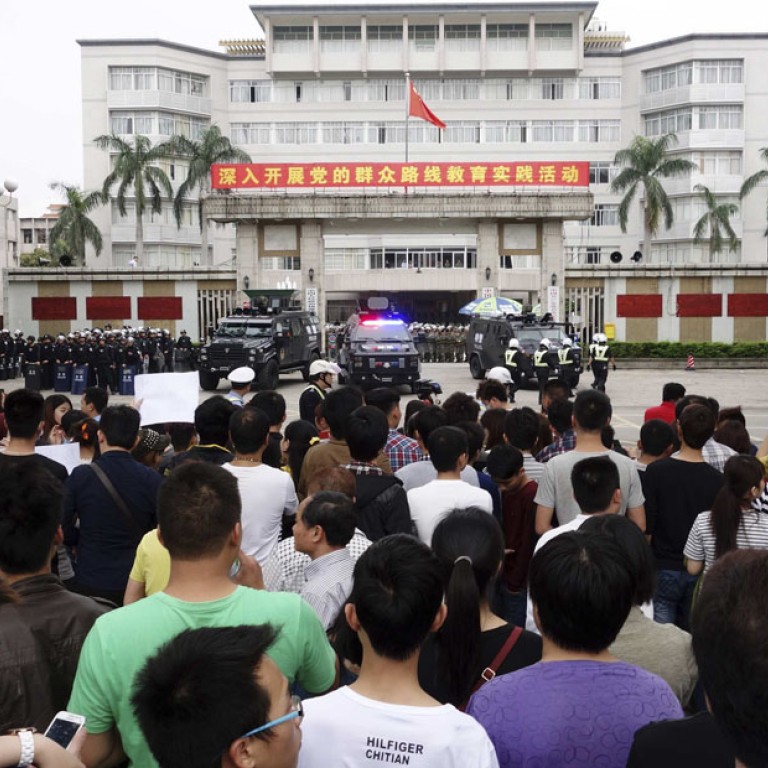
Maoming chemical plant failed to build trust with residents
Local governments on the mainland well know the sensitivities of chemical plants that produce paraxylene, or PX. Protests since 2007 against perceived harmful pollutants have caused authorities to cancel plans to build facilities in a number of cities.
Local governments on the mainland well know the sensitivities of chemical plants that produce paraxylene, or PX. Protests since 2007 against perceived harmful pollutants have caused authorities to cancel plans to build facilities in a number of cities, Xiamen, Ningbo and Dalian among them. Authorities in Maoming in Guangdong now face the same dilemma after demonstrations that have found support in Guangzhou and Shenzhen. They would not have faced such opposition had they been transparent and honest about plans.
Mindful of the likely objections, authorities had first gone on a media offensive to convince residents of the benefits of expanding the Maoming plant, operated by the local government and the state-run oil giant Sinopec, to produce PX, used to make polyester and plastic bottles. The state-run described the chemical as "an important element for building our happy life". But it was always going to be a hard sell: long-term exposure to the chemical is widely thought to have harmful side effects. Peaceful protests turned violent and images of bloodied demonstrators that appeared on social media were quickly censored.
Government statements condemning the "grave" and "illegal" activities of the protesters only furthered the outrage; a press release on April 3 saying that scientific studies of the plant's impact were still under way and that no action would be taken without first gauging popular opinion has failed to placate residents. Public involvement in the decision-making process should have happened from the outset. Instead, authorities were furtive, giving rise to rumour. It has become an established cycle each time an industrial plant is planned on the mainland; protests follow, then authorities back down.
No matter how hard Maoming authorities try to convince the public, they will now struggle to win support for the project. The days when industrial plants could be built without community consent have long gone. Citizens are worried about the air they breathe and water they drink; Premier Li Keqiang's pledge to launch a war on pollution has strong support.
Industrial development is crucial for growth, but it has to be done with the environment in mind. Authorities have to be transparent and try to involve communities at every stage of a project's planning and development. They have to listen to residents and be prepared to make changes. There is no other way to build the necessary trust.

